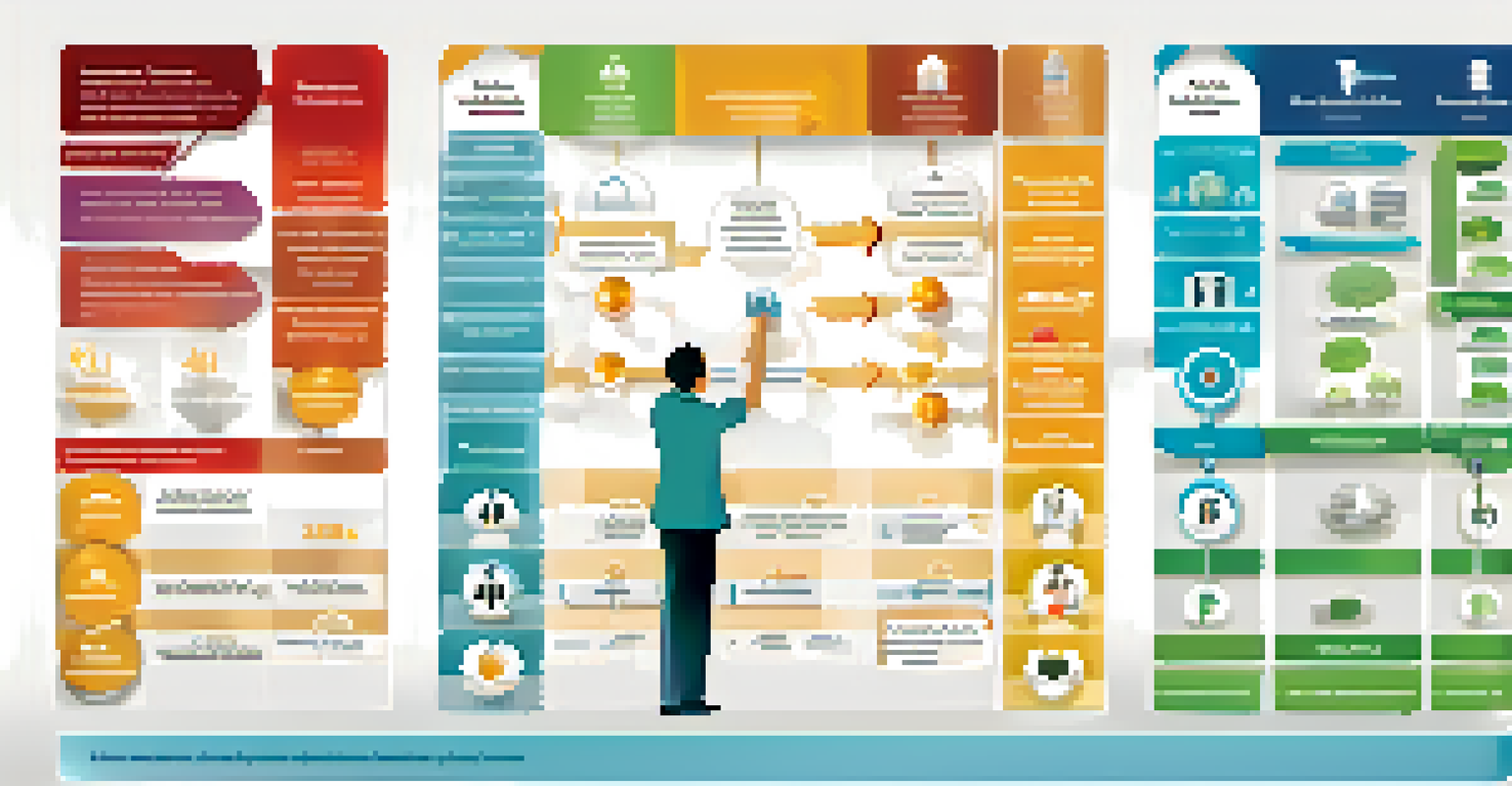The Importance of Clinical Trials in Vaccine Research Process

What Are Clinical Trials and Their Purpose?
Clinical trials are research studies that evaluate new medical interventions, including vaccines. They are essential for determining the safety and effectiveness of these interventions before they are approved for public use. By involving diverse groups of participants, these trials can assess how different populations respond to vaccines.
Clinical trials are the bedrock of medical advancements, ensuring that every new treatment is both safe and effective.
The purpose of clinical trials extends beyond just finding out if a vaccine works; they also help identify the best dosages, potential side effects, and how long immunity lasts. This research is crucial to ensure that vaccines can protect individuals and communities against diseases effectively. Without this rigorous testing, we wouldn't have the confidence in vaccines that we do today.
In essence, clinical trials serve as the backbone of vaccine research, providing the data needed to make informed decisions about public health policies and vaccination programs. They bridge the gap between laboratory research and real-world application, ensuring that vaccines are both safe and effective.
The Phases of Clinical Trials Explained
Clinical trials are typically conducted in four phases, each designed to answer specific research questions. Phase I trials focus on safety, involving a small group of healthy volunteers to assess how the vaccine affects the body. Phase II expands the participant pool and starts to evaluate the vaccine's effectiveness and optimal dosage.

Phase III trials involve thousands of participants and are critical for determining how well the vaccine works in a larger population. These trials compare the vaccine group to a placebo group to see if the vaccine significantly reduces the incidence of the disease. Finally, Phase IV occurs after a vaccine is approved, monitoring its long-term effects and effectiveness in the general population.
Clinical Trials Ensure Vaccine Safety
Clinical trials rigorously test vaccines to determine their safety and effectiveness before public use.
Each phase plays a vital role in the research process, ensuring that only the most promising vaccines move forward. This structured approach helps identify any potential issues early on, protecting public health by ensuring that only safe and effective vaccines are made available.
The Role of Participant Diversity in Trials
Diversity among clinical trial participants is crucial for ensuring that vaccines are effective across different demographics. Factors such as age, gender, ethnicity, and underlying health conditions can influence how a vaccine works in various populations. By including a diverse group of participants, researchers can gather more comprehensive data on the vaccine's performance.
The inclusion of diverse populations in clinical trials is essential for understanding how different groups respond to vaccines.
For example, a vaccine that works well for one age group might not be as effective for another. Additionally, some populations may experience different side effects or have unique responses to the vaccine. Ensuring a representative sample helps address these variations and leads to a more robust understanding of the vaccine’s safety and efficacy.
Moreover, diverse participation fosters trust in the research process, as various communities see their needs and concerns represented. This inclusivity is essential for public acceptance of vaccines and ultimately contributes to the success of vaccination programs.
Informed Consent: A Crucial Step in Trials
Informed consent is a fundamental ethical requirement in clinical trials, ensuring that participants understand what they are signing up for. Before joining a trial, individuals receive detailed information about the study, including potential risks, benefits, and the nature of the intervention. This transparency empowers participants to make informed decisions about their involvement.
This process is not just a formality; it reflects a commitment to ethical standards in research. Participants must feel comfortable asking questions and seeking clarification about any aspect of the trial. This dialogue helps establish trust between researchers and participants, which is vital for the trial's success.
Diversity Enhances Vaccine Research
Including diverse participants in clinical trials is vital for understanding how vaccines perform across different demographics.
Ultimately, the informed consent process safeguards participants' rights and well-being, reinforcing the ethical foundations of clinical research. It ensures that individuals are not just subjects but informed partners in the quest for medical advancements.
How Clinical Trials Impact Vaccine Development Speed
While clinical trials are inherently time-consuming, they are designed to streamline the vaccine development process. By meticulously testing vaccines in phases, researchers can quickly identify which candidates are promising and which are not. This efficiency helps redirect resources and focus on the most viable options.
During public health emergencies, such as pandemics, regulatory agencies can facilitate faster trial processes without compromising safety. For instance, overlapping trial phases can expedite the research timeline, allowing for quicker vaccine availability. This adaptability is crucial when timely responses are needed to control outbreaks.
However, it's important to remember that speed should not come at the expense of safety. The rigorous evaluation process ensures that vaccines are thoroughly tested, maintaining public trust in vaccination efforts even in urgent situations.
The Impact of Technology on Clinical Trials
Advancements in technology have transformed how clinical trials are conducted in vaccine research. From digital data collection to remote monitoring, technology enhances the efficiency and accuracy of trials. This modernization allows researchers to gather real-time data and respond swiftly to any emerging trends or issues.
Furthermore, technology facilitates better participant engagement, making it easier for individuals to enroll and stay connected throughout the trial process. For example, mobile apps can provide participants with updates, reminders, and platforms to report their experiences. This increased engagement helps researchers collect valuable feedback and ensures participant retention.
Technology Streamlines Trial Processes
Advancements in technology improve the efficiency and accuracy of clinical trials, leading to faster and more reliable vaccine development.
Ultimately, technology not only speeds up the research process but also improves the overall quality of clinical trials. By leveraging innovative tools, researchers can produce more reliable results, paving the way for effective vaccines that meet public health needs.
The Future of Clinical Trials in Vaccine Research
The landscape of clinical trials is continually evolving, with new methodologies and approaches being adopted to enhance vaccine research. Innovations such as adaptive trial designs allow researchers to modify trial parameters based on interim results, optimizing the process. This flexibility can lead to faster conclusions about a vaccine's effectiveness.
Moreover, the integration of artificial intelligence and machine learning is set to revolutionize how data is analyzed and interpreted in clinical trials. These technologies can identify patterns and predict outcomes more accurately than traditional methods, ultimately improving the reliability of research findings.

As we look to the future, the role of clinical trials in vaccine research will only grow more critical. With ongoing challenges in global health, these trials will be essential in developing safe and effective vaccines that can address emerging diseases and protect public health worldwide.